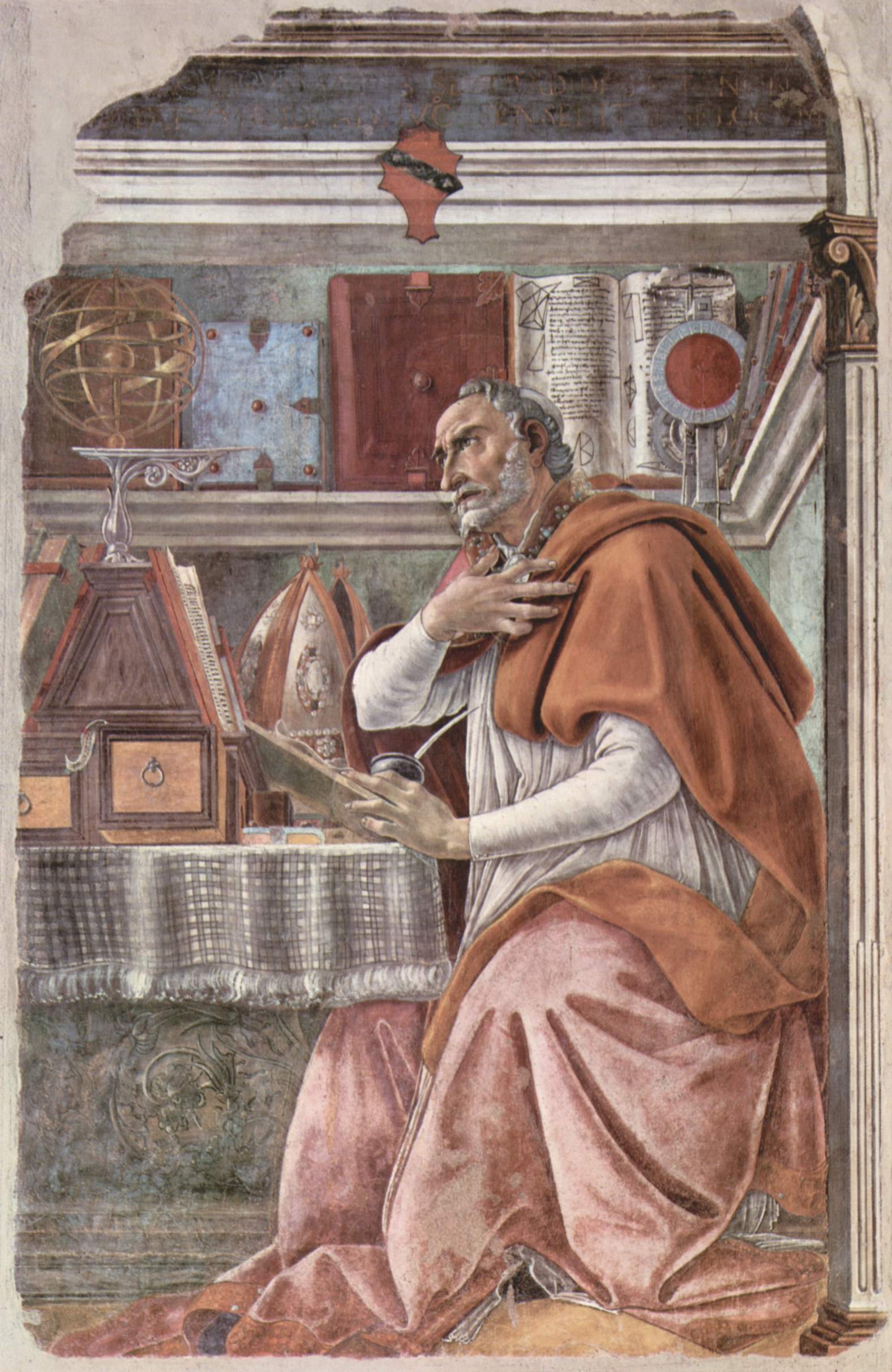You get the (horrible) picture.
This macabre mix of hatred and flirtation with Catholicism in the Reformed mindset takes flesh and blood in one historical character, St. Augustine of Hippo.

This great thinker is also maliciously maligned in a way similar to how I often have felt, for he has at once been bearer of the brunt of the blame for causing Calvinism and Catholicism.
Take this quote from Dave Hunt, who wrote against Calvinism by saying:
In 386, after studies in philosophy, law and the classics (he was greatly inspired by Plato), a year of teaching grammar and a career as a rhetorician, Augustine embraced Christianity, entered the Roman Catholic Church, and established a monastery which he moved to Hippo, Africa upon being appointed its bishop. Often called the father of Roman Catholicism’s major doctrines, as we shall see, Augustine heavily influenced later philosophers and even exerts a strong influence among evangelicals today through Calvinism (p. 23).
Here we see Augustine as the prototype of two things that are supposed to be diametrically opposed, if the Calvinist is correct.
How can we settle this matter? One tactic is to take Augustine and turn him into two people. By dividing his later works from his earlier work, we can have him say two things that clash with each other. Take this quote from Norman Geisler, who objects to the claim that there is historical basis for Calvin's thinking.
We have been defending a moderate form of Calvinism. This view is not new. Its roots are found in the early writings of St. Augustine…St. Augustine's earlier view was a more moderate form of what I have called extreme Calvinism. In our opinion, had Augustine not been thrown off track by his view of baptismal regeneration and the coercion of heretics to believe (during the Donatist controversy), extreme Calvinists would find no substantial support in the whole history of the Christian church up to the Reformation (CBF, 129-130).
Why does he stress the early works of St. Augustine? There he wrote on the will and freedom in such a way that it would seem to make him sound "Arminian", and as a result, Geisler aligns himself with the "early" Augustine. The "later" Augustine was too Calvinistic for his ears. To the Calvinist, "later" Augustine was just right. He had grown with time and had shaken off his childish ways of believing in the ontological freedom of the will.
But really, is Augustine a schizophrenic? Did he change with time?
I would answer, "No" to the first question, and "Yes but not towards contradiction" to the second question. Ah, but I'm arguing from the Catholic perspective, so I must be biased, right?
Actually, there is a very simple way to check if those who break up Augustine's work are doing him justice. Thankfully, the habits of the great ancient writers included the task of composing retractions. Sometimes this was not a literal statement of "I have erred", but more a matter of saying "I could have said this better. If I could write this book again, I would treat the matter thusly." But retractions very well could include a statement denouncing earlier statements. At any rate, Augustine published his retractions towards the end of his life, and what did he have to say about his alleged two selves?

In actuality, there was no substantial retraction of his early or his later work. To Augustine at least, this whole matter of dividing him asunder makes as much sense as Solomon's threat to the women who debated over the maternity of one baby. Augustine was not a schizophrenic.
Now, the real question one must consider after all of this is--is there a way to embrace both the early and the late Augustine at the same time? How does this work. My answer would be, here:

Can't you just imagine Pope Benedict XVI saying, "Come Join Us"?
Here we have the mystery maintained - God's sovereignty, man's responsibility.
So in a sense, the Arminians and the Calvinists are both right about Augustine. The charge that (especially early) Augustine spoke too highly of the will for Calvinist ears is true, but it is also true that in his later writings he is too willing to praise God's sovereignty for Arminian ears.
Augustine was not divided against himself, for such a house (and by extension, such a person) shall not stand.
But I'll leave the explanation of how I think it all works out for another time...










No comments:
Post a Comment